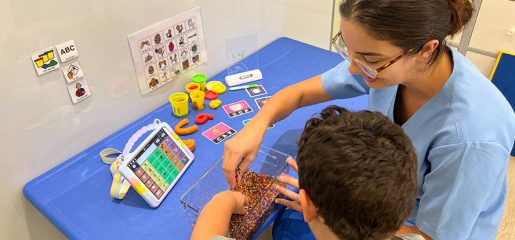Speech disorders can significantly impact a person’s ability to communicate effectively. Understanding these disorders and the role of speech therapy UAE in managing them is essential for promoting better communication and quality of life.
Stuttering:
Stuttering, also known as stammering is characterized by repetitions, prolongations, or blocks that disrupt the natural flow of speech. People who stutter may find it difficult to express their thoughts smoothly, leading to frustration and anxiety.
How therapy helps:
Speech therapy for stuttering often involves techniques to improve fluency, such as slow and controlled speech practice. Therapists may use strategies like the Lidcombe Program for young children, which involves parent-led therapy sessions, or the use of electronic devices that provide delayed auditory feedback to help adults. Cognitive-behavioral therapy (CBT) can also be beneficial in addressing the psychological aspects of stuttering.
Articulation disorders:
Articulation disorders involve difficulties in producing specific speech sounds correctly. This can result in speech that is difficult to understand. Common issues include substituting one sound for another, omitting sounds, or distorting sounds.
How therapy helps:
Speech-language pathologists (SLPs) work on improving the accuracy of sound production through repetitive practice and articulation exercises. Techniques such as phonetic placement therapy, where the therapist guides the correct positioning of the lips, tongue, and jaw, are often employed. Visual aids, auditory discrimination tasks, and tactile feedback are also useful tools in articulation therapy.
Voice disorders:
Voice disorders encompass problems with pitch, volume, or quality of the voice. This can include conditions like vocal nodules, polyps, or laryngitis, which affect the vocal cords and result in hoarseness, loss of voice, or abnormal vocal quality.
How therapy Helps:
Voice therapy focuses on vocal hygiene education, teaching proper voice use and techniques to reduce strain on the vocal cords. Exercises to strengthen the vocal folds, improve breath control, and optimize resonance are commonly used. In some cases, medical intervention may be necessary, but therapy plays a vital role in rehabilitation.
Speech disorders can present significant challenges, but with the right therapeutic interventions, individuals can improve their communication skills and quality of life. Early diagnosis and consistent therapy are key to achieving the best outcomes, highlighting the vital role of speech-language pathologists in this process.
